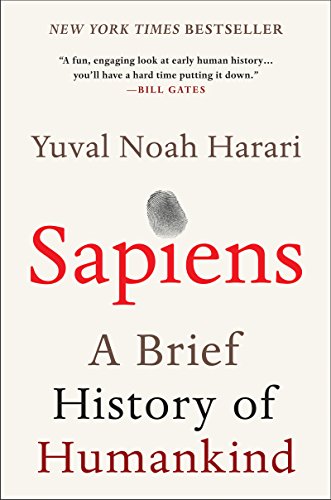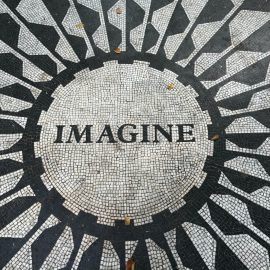

This article is an excerpt from the Shortform summary of "Sapiens: A Brief History of Humankind" by Yuval Noah Harari. Shortform has the world's best summaries of books you should be reading.
Like this article? Sign up for a free trial here .
What can the science of happiness tell us about how to be happier? What can it tell us about our happiness compared to the happiness of our ancestors? Are we getting happier over time? Or unhappier?
We’ll cover recent research on the science of happiness and look at how researchers determine how our happiness compares to that of our ancestors.
The Science of Happiness
Many researchers have used “subjective well-being” as a stand-in for happiness. This implies that happiness is a feeling, either one of pleasure in the moment or one of contentment in the long term. This theory depends on the assumption that we can judge people’s happiness by asking them how they feel. Although we can’t ask our ancestors how they felt, we can use the science of happiness to take current findings and apply them retroactively.
The “Expectations” Theory of Happiness
One well-researched theory of the science of happiness is the “expectations” theory. The most significant finding in the study of happiness is that long-term happiness is based on the gap between our expectations and reality. If the gap is large and reality is far from meeting your high expectations, you’re unhappy. If the gap is small or nonexistent, you’re happy. For example, if you expect to get an ox cart from your father when you come of age and you get an ox cart, you’re happy. But if you expect to get a new Ferrari on your 16th birthday and you get a used Toyota, you’re unhappy.
Solving this problem isn’t as easy as just lowering our expectations, says the science of happiness. When our lives get better, we expect more. So the more we get, the more we want.
We can find evidence of the wealth or health of our ancestors, but it’s hard to measure the expectations people had in the past. This complicates the task of answering the question, “are we happier now than we were then?” For example, we have less pain than our ancestors did because we have more painkillers and tranquilizers. But because we expect less pain, we may suffer more than our ancestors did when we experience pain. But we can’t know for sure. We can’t put ourselves in the shoes of our ancestors because we inevitably take our modern expectations with us.
For example, we change our clothes every day, so we assume it must have been awful to live as a medieval peasant, who didn’t change her clothes often and went months without washing. But medieval peasants were used to living in unwashed bodies and clothes and didn’t seem to have minded. Daily washing and clothes-changing are modern expectations.
According to the science of happiness, we may be unhappier than our ancestors merely because expectations are so much higher. This is due, in part, to the media and advertisements. They manipulate our expectations and erode our contentment. A teenager living 5,000 years ago judged his appearance against his fellow villagers, most of whom were old and wrinkled or still children. Most teenage boys of the past probably felt pretty good about how they looked. In contrast, today, a teenager is bombarded by images of movie and sports stars on TV, the internet, and billboards. He’s much less likely to feel confident in his appearance because the expectations are higher. We don’t compare ourselves against our ancestors. We compare ourselves against our contemporaries.
The Future of Happiness
As expectations continue to increase, it’s possible our happiness will continue to deteriorate. For example, we talk about immortality as the biggest breakthrough for happiness. What could be happier than not dying? But the expectation of immortality, contrasted with reality, will bring new problems, according to the science of happiness. The poor probably won’t be able to afford the technologies that make people immortal. This will make them feel angrier and more oppressed than previously. The gap between their expectations (immortality) and reality (mortality) will widen dramatically.
The rich, who can afford the technology to be immortal, will feel anxious. Although they may not die of natural causes, they could still be hit by a car or their city could be bombed by a terrorist. The gap between their expectations (immortality) and reality (the world will always contain life-threatening dangers) could make them risk-averse and paranoid. Further, when death is no longer natural, losing a child or spouse will be even more heartbreaking than it is now.
The Biological Theory of Happiness
Another theory of the science of happiness is the biological theory of happiness. According to biologists, our happiness is determined by the biochemical reactions caused by hormones like oxytocin, serotonin, and dopamine. This implies that happiness comes from pleasurable feelings—whether we win the lottery or fall in love, happiness comes not from the experiences themselves but from the resulting flood of hormones and electrical signals in our brains.
Unfortunately, according to this science of happiness, we have evolved to remain in a relatively static state of happiness. It wouldn’t be prudent for the success of our species to be happy all the time. For example, sex evolved to be pleasurable so that men would be motivated to spread their genes. But this pleasure also evolved to be limited. If orgasms lasted forever, males wouldn’t bother doing anything else, like hunt for food, eat, or look for other available females.
Like an air conditioner, our biomechanical system is programmed to return to a set point, and every individual has a slightly different set point. Some air conditioners are set to 70 degrees Fahrenheit and some are set to 20. Similarly, some people’s happiness levels are set to fluctuate between levels 6 and 10 and level out at 8, whereas other people’s levels fluctuate between 3 and 7 and level out at 5. In the science of happiness, this means that some people are wired to be happier and some wired to be gloomier, regardless of external circumstances like money or health.
For example, the French Revolution brought about many changes: it did away with the monarchy, gave peasants land, and gave citizens rights. But it didn’t change the biochemical systems of French individuals. Consequently, the revolution may not have had much of an impact on French happiness. Those who were happy before the revolution were happy after it. Those who had griped about Louis XVI and Marie Antoinette before the revolution probably griped about Robespierre and Napoleon after it. Their genetic predispositions, and therefore outlooks on life, remained the same.
The biological theory suggests that historical developments have had no effect on happiness since biologically, we’re pretty much the same as we were 5,000 years ago. The only historical event that could have possibly impacted our happiness was the development of antidepressants that change our biochemistry, like Prozac. But we don’t like this idea. We’re troubled by happiness that comes from a pill, although we’re not sure why. The science of happiness doesn’t always give us the answers we want.
———End of Preview———

Like what you just read? Read the rest of the world's best summary of "Sapiens" at Shortform . Learn the book's critical concepts in 20 minutes or less .
Here's what you'll find in our full Sapiens summary :
- How Sapiens outlived and outlasted the 8+ other human-like species on Earth
- The 3 critical revolutions in human existence that led to our domination of the planet
- How much of what powers our world today is really just a shared mass delusion
- What the future of humanity might look like







I notice that people,are more in a rush lately, even in walking…a rush to exercise and they look unhappy. Families are also way to busy now with the need to be successful and for their kids to be over achievers. Funny my 5 year old grandchild already let me know she was smarter then me. So I make a practice of smiling even with a mask on because a smile lights up your eyes. A few people in store came up,to me and thanked me because my smile helped them. Music was on in one store while I was shopping and I said to this tired looking man stocking groceries…I think you should be dancing to this music..so we did a little dance together and his body stood like he was less burdened.